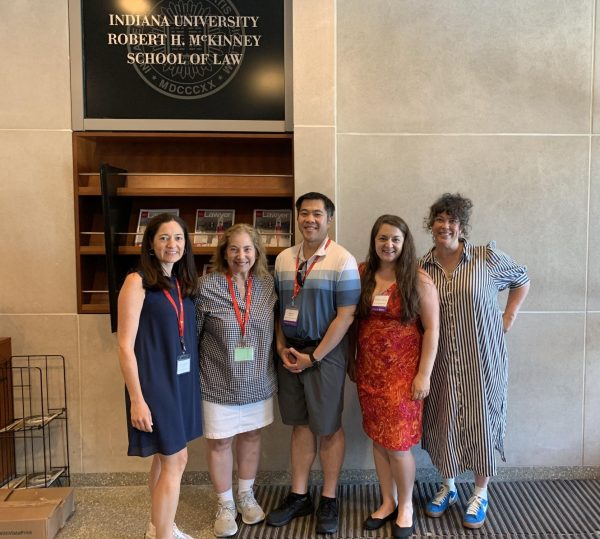Allen Presents Article at Cornell
On February 21st, Professor Renee Nicole Allen presented her work-in-progress, Contextualizing the Triggering Event: Colonial White Supremacy, Anti-Blackness, and Black Lives Matter in Italy and the United States, as part of the Berger International Speaker Series at Cornell Law School. From the abstract:
In the summer of 2020, spurred by George Floyd’s murder and, in the midst of a worldwide pandemic, Black Lives Matter demonstrations peaked in the United States. The viral nature of the police violence that caused Floyd’s death was a triggering event for transnational Black Lives Matter protests. Around the world, millions took to the streets to demand justice. In Italy, a resounding demand that “Black lives matter” filled the streets during solidarity protests that occurred in Milan, Naples, and Rome. Less than six months later in September 2020, the fatal civilian beating of Willy Monteiro Duarte, a Black Italian, revealed the necessity of contextualizing localized anti-Black violence. Black Italians criticized a cognitive dissonance among White Italians who made “Black Lives Matter” their rally cry while also sanitizing anti-Black racism, ignoring anti-Black violence, and failing to acknowledge entrenched White supremacy in Italy. This criticism highlights the importance of contextualizing a triggering event when “Black Lives Matter” resonates outside the United States.
To contextualize the triggering event, this article employs a critical comparative framework to analyze anti-Black origin and entrenchment. First, this article examines Black and White racialization. Next, a comparison of colonialism in the United States and Italy illuminates how colonial laws and practices established Whiteness as civil, moral, and powerful. Here, post-colonial collective amnesia reveals similarities in the ways anti-Black violence is sanitized and anti-Black racism is denied. Next, it demonstrates how blood narratives perpetuate anti-Blackness by legally limiting the rights of Black people. Finally, it contextualizes the triggering event. Borrowing from tenets of Afro-pessimism, it concludes by highlighting the importance of context in geographically disparate “Black Lives Matter” activism.









